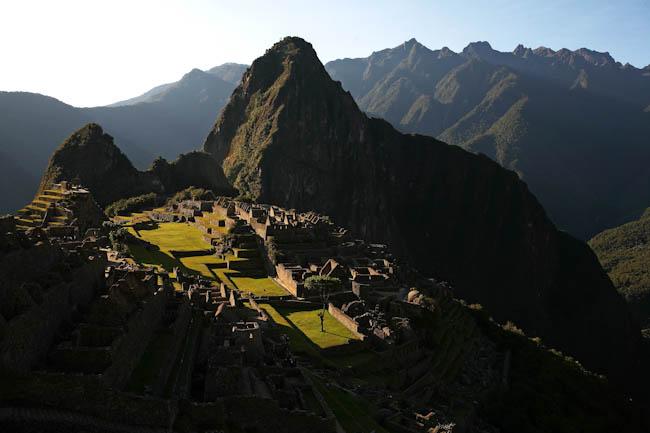Photos: 100 years of Machu Picchu
![]()
It's been a hundred years since the "discovery" of Machu Picchu.
Of course the city high in the Andes Mountrains was actually built centuries earlier by the Incans.
And local farmers had known about its existence for years before American historian Hiram Bingham showed up in 1911.
Bingham had even been beaten to the site by Peruvian Agustin Lizarraga and German Augusto Berns, who bought land there in the 1860s.
But Bingham — the inspiration for Hollywood's "Indiana Jones" character — is credited with introducing Machu Picchu to the modern world after he shared his findings about the "lost city of the Incas" in National Geographic.
And so celebrations of "100 years of Machu Picchu in the world" began this morning with a 21-gun salute in the Imperial City. Art and cultural festivals are scheduled, as is a staging of the traditional Tinkay ceremony and a concert titled "Heights of Machu Picchu."
Historians and archeologists have yet to agree on the function of Machu Picchu, which is located 7,900 feet above sea level. Some believe it was a sacred site, while other believe it was a resort for an Inca emperor.
Follow Stephanie on Twitter: @stephaniegarlow
![]()
Chilean musician Mario Mutis, member of the legendary Chilean band Los Jaibas, rehearses in the ruins of Machu Picchu citadel, on July 6, 2011. (Cris Bouroncle/AFP/Getty Images)
![]()
A girl wearing a traditional regional Andean attire participates in a civic parade in the town of Machu Picchu, on July 6, 2011. (Cris Bouroncle/AFP/Getty Images)
![]()
(Brent Stirton/Getty Images)
![]()
(Brent Stirton/Getty Images)
![]()
The Coricancha Inca temple on April 1 2010. (Ernesto Benavides/AFP/Getty Images)
![]()
An archaelogical piece from Machu Picchu on April 4, 2011. (Ernesto Benavides/AFP/Getty Images)
![]()
Foreign tourists at Machu Picchu on April 1, 2010. (Ernesto Benavides/AFP/Getty Images)
Top photo by Ernesto Benavides/AFP/Getty Images
